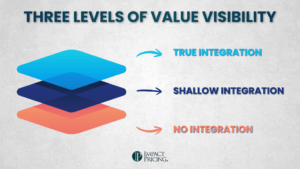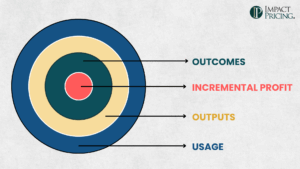You can listen to the full audio version of this blog we call — Blogcast.
One of my favorite pricing tools is a scatter plot. It’s simply a graph of deals with discount on one axis and deal size on the other. You expect to see a trend where the larger deals have bigger discounts. But there are many deals that don’t follow that trend. Is that good or bad? Yes. It can be good or bad.
First, assume your salespeople negotiate well. That means the prices the deals closed at are a good representation of your customers’ willingness to pay. You can use this information and conversations with your salespeople to determine what drives the willingness to pay. Then, you can tweak marketing messages, offers, even pricing to grow your company.
What if you can’t determine what drives willingness to pay? That implies your discounts are somewhat random. You should focus on helping salespeople sell value and uplevel their negotiation skills. Then, you should start making sense of your data.
What if there is no price variance? If all deals are at the same price, you are definitely leaving money on the table. Different buyers have different willingness to pay. You are not capitalizing on that fact. Most of the people who buy from you would have paid more. The key is figuring out how to capture more.
My recommendation is to look at your price variance. Can you explain it? Does it make sense? What else could you do to capture more of your customers’ willingness to pay?
Share your comments on the LinkedIn post.
Now, go make an impact!
 Tags: price, price variance, pricing, pricing skills, willingness to pay
Tags: price, price variance, pricing, pricing skills, willingness to pay













